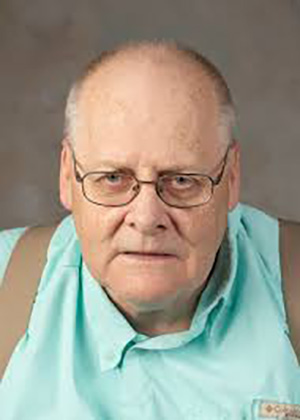By Greg Markley
The Voting Rights Act of 1965 turned the voting rights promised by the Fourteenth and Fifteenth Amendments to the U.S. Constitution into reality. This was followed by a long journey which led to an African American president and now the first black U.S. Senator from Georgia. Good things can happen when members in each party agreeing to a bill. This Act passed the House 328-74 and the Senate by 79-18.
Senate Minority Leader Everett Dirksen wrote the bill and got other Republicans to support it. In 1966, he made a spoken recording called Gallant Men which was very popular. A refrain was “Gallant men have built us a nation/Passed us a torch of flame/Let us hold it high/and light up the sky/with praise of our gallant men.” Where are the gallant men and women who realize that no voting rights bill is perfect, and say so? A good result might surface if rigidity recedes.
The For The People Act is unusual for a major bill in that this Democratic voting rights package has not drawn any GOP support yet in the Senate. Neither have Republicans attracted Democrats for alternative approaches to voting rights and election security. Here I evaluate aspects of For The People that I am not happy with and others that have merit. On April 7, I will analyze Republican ideas.
It sounds great if people can register the same day of the election, but what if there are long lines as in the 2008 and 2012 general elections? People have no tolerance for those crowds, and may walk away or gripe. This will be doubly true in 2022, when there is no presidential contest and likely light opposition to the Republican nominees for constitutional offices in Alabama.
I don’t know why so many people like early voting; look at the crowds at early voting – at high hours they are longer than on Election Day itself! It is also intellectually bereft in that several federal candidates have died in plane crashes, for example, a week before the election: thus early voters would have missed a chance to vote for another candidate.
This Democratic bill correctly suggests authorization for 16-and 17-year-olds to pre-register to vote in advance of their becoming 18. Learning about civic responsibility and politics in high school is necessary and proper. For these teenagers to actually pre-file a year or two ahead to vote hopefully gets them excited enough to actually vote at age 18.
“A 16-year-old in 2021 possesses wisdom and a maturity that comes from 2021 challenges, 2021 hardships and 2021 threats,” said U.S. Rep. Ayanna Pressley (D.Boston) arguing for making 16-year olds eligible to vote. The House dispensed with Congresswoman Pressley’s measure, by 302-125. They were not ready to have 16-year-olds help choose a president or even their local member of Congress. But who’s to say that bright 16-year-olds could not make a good choice; they may even vote more wisely than their parents and grandparents.
For The People Act has election security enhancements, such as a voter verified paper ballot provision instituting paper ballots that can be marked by voters by hand or with a ballot marking device. It would be inspected by the voter to allow any errors to be corrected before the ballot is cast.
I think that is OBE (overcome-by-events). First, in one election my ballot’s circles were not filled in completely and an elections official said I could throw away that ballot and get a new one. That is what I did, no problem. Second, election officials granted voters the right to photograph their completed ballot, or even make a “selfie” with it.
John Merrill, Alabama’s secretary of state, sent the U.S. Senate Rules Committee a letter arguing that the Act would negatively impact military voters who want to vote absentee. Merrill said that at least 32 states allow military and overseas voters to get and send back absentee ballots electronically. The Act would prohibit electronically transmitted ballots, which are speedier and provide better assurance that military personnel’s vote will be accepted quickly.
“Prior to the passage of the Military and Overseas Voter Empowerment (MOVE) Act, which required timely transmission of ballots to military voters, the ability for military voters to successfully participate in elections was extremely limited,” Merrill said. “Of the one million absentee ballots sent to military and overseas voters in 2006, only one-third were actually cast or counted. The number of military voters unable to successfully cast ballots was decreased from 30 percent in 2004 to 17 percent today.”
In his 2007 book, “Where Have all the Leaders Gone?” self-made businessman Lee Iacocca posed precisely that question. He found many “leaders” were overrated or lost when outside their own perch. He asked “What is each of us giving back to our country?” “Do we truly love democracy?”
If For The People becomes law, or most of it rejected, we will have half of our citizens crying “fraud” or “voter suppression.” It’s time for DC politicians to be more gallant men and women. Next week I examine why voting rights bills and bipartisanship no longer go together.
Greg Markley first moved to Lee County in 1996. He has Masters’ in education and history. He taught politics as an adjunct in Georgia and Alabama. An award-winning writer in the Army and civilian life, he has contributed to the Observer for 9 years. gm.markley@charter.net

